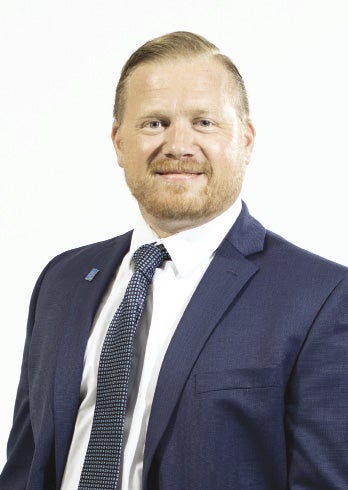For individuals with developmental and intellectual disabilities (IDD), meaningful community employment can be life changing. It’s more than a paycheck, a routine, or a place to go.
Get Instant Access to This Article
Subscribe to Worcester Business Journal and get immediate access to all of our subscriber-only content and much more.
- Critical Central Massachusetts business news updated daily.
- Immediate access to all subscriber-only content on our website.
- Bi-weekly print or digital editions of our award-winning publication.
- Special bonus issues like the WBJ Book of Lists.
- Exclusive ticket prize draws for our in-person events.
Click here to purchase a paywall bypass link for this article.
For individuals with developmental and intellectual disabilities (IDD), meaningful community employment can be life changing. It’s more than a paycheck, a routine, or a place to go. Having a competitive job can give people a work identify that builds confidence, boosts self-esteem, and fosters increased independence carrying over into other areas of life. We see examples of this virtually every day in our work at Seven Hills Foundation in Worcester. One example of a young man supported through the ASPiRE! program highlights just how life changing employment can be for individuals with IDD.

This young man – we’ll call him Nate – joined a community-based day and employment supports program with Seven Hills when he turned 22 and transitioned to adult services. Nate initially presented himself as shy and unsure, hesitant to speak or even make eye contact with others, often looking away when passing people in the hallway. But Nate wanted to work. He just needed some support to explore opportunities and enhance his social and functional skills to succeed in employment.
In a group-supported setting alongside peers and with the support of a job coach, Nate began working at AIS, a large furniture manufacturer in Leominster, in 2021. At first performing basic sanitizing and custodial tasks, Nate had the opportunity to explore different jobs at AIS and soon started training in production departments of interest to him.
Nate has maintained a daily work schedule at AIS for more than two years, performing production in one of the manufacturing stations, assembling inserts for cabinets and office furniture. He and his peers produce approximately 25% of all pieces coming out of that department daily with high quality control and a reject rate of virtually 0% upon completion. This is work requiring careful assembly, attention to detail, and precision. Nate performs this work exceptionally well and is regularly recognized by coworkers and leaders at AIS for his high performance.
During a visit to AIS, I observed Nate not only engaging in conversation with others but presenting in front of a group of peers, some of whom were new to that worksite. He provided a demonstration and instruction on how to perform assembly work. He spoke not only with confidence, but with a quality of leadership in what I observed to be a sincere case to support others to learn the job and be successful.
Rick Marchand, collaborative program coordinator at AIS, has made inclusivity a priority for the organization. “AIS is honored and humbled to provide job skill training, employment opportunities, and embracing the true values of inclusion in the workplace,” Marchand said.
Thanks to partner employers like AIS, organizations making it a priority to improve diversity and enhance inclusion, people like Nate can find their niche and not only succeed, but exceed expectations and deliver tremendous value to their employers, coworkers, and communities at-large.
